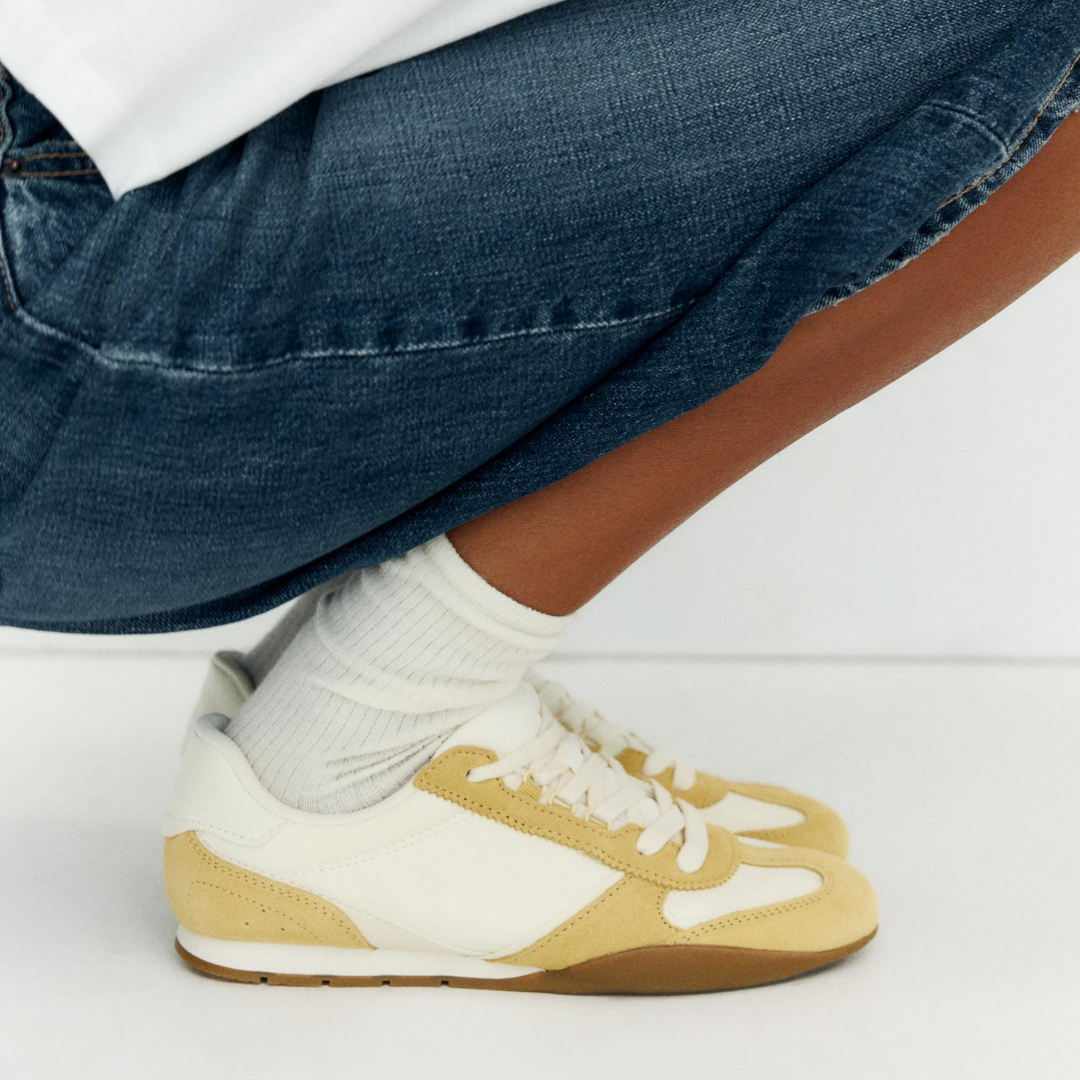The Rebel Diet
Born to eat wild? Have an on-again, off-again relationship with healthy eating? You'll love the latest weight-loss news.

As a health writer, I've always been smug in my nutrition knowledge—and not shy about sharing it. "You need breakfast," I'd scold my friends. "Consistency is key!" Admittedly, I was a little patronizing. So of course I rolled my eyes a few months ago when my friend Emily, visiting from London, told me about 5:2—aka The Fast Diet—developed by health journalists Michael Mosley and Mimi Spencer. I listened incredulously as Emily described friends shedding weight like crazy by eating what they wanted all week, save for two nonconsecutive 500-calorie "fast" days.
By the time The Fast Diet book hit the U.S. in March, the Brits had turned to another intermittent diet called the 2-Day (detailed in a book by dietitian Michelle Harvie, Ph.D., and oncologist Dr. Tony Howell), which bans carbs except for fruits and vegetables two days a week. And another variation—The Every Other Day Diet by Krista Varady, Ph.D.—will be published next year. The books got me wondering: Could yo-yo dieting, fasting, and skipping meals actually work? If so, I wanted to keep up with the times—and if I could drop 5 pounds, all the better.
OLD VIEW: Yo-yo dieting wrecks your metabolism.
NEW PERSPECTIVE: It depends on how you yo-yo.
Intermittent fasting is different than regular dieting. Experts say evolution is why our metabolism hums along agreeably with short spurts of feast and famine. Millennia ago, we'd pick berries and greens for days before hunters finally hauled home a big, fat buffalo. We'd feast until the meat was gone, then we'd forage again, relying on our fat storage for fuel. Given that our eat-whenever-we-want food environment is new in the grand scheme of history, our metabolism hasn't evolved to catch up. So if we return to the old way of eating, our bodies thrive and we can lose weight, says Valter Longo, Ph.D., director of the Longevity Institute at the University of Southern California.
Fasting is hard, though. And in some sense, non-fast days are harder. Following the rules outlined in The Fast Diet, I eat yogurt and berries, an arugula salad, and a chicken drumstick on my first fast day. The next day, I stuff my face with cake and mac 'n' cheese and feel sick. Apparently, there's a thin line between yo-yo and intermittent dieting. It's called control—and I don't have it.
OLD VIEW: You need all the recommended nutrients every day.
Stay In The Know
Get exclusive access to fashion and beauty trends, hot-off-the-press celebrity news, and more.
NEW PERSPECTIVE: You can make up for deficits over time.
When I e-mail Susan Roberts, Ph.D., professor of psychiatry at Tufts University's Friedman School of Nutrition Science and Policy, I expect her to disapprove of the latest fad—and she does, in a way. "It may not be sustainable," she tells me. But on the issue of recommended daily nutrients, she is less critical. "Our bodies are designed to retain vitamins we take in over time, on days we do eat," she says. So the good news is, if your meals are well-balanced when you do eat, you don't have to stress over a few missed vitamins when you don't. The bad news: You must be conscientious about what you eat on your non-fast days.
It's no wonder, then, that after two weeks of very little good food and a lot of very bad food, I shed no weight. Emily, however, fares better. "Really? You lost nothing?" she asks incredulously on our transatlantic call. By doing 5:2 for a month—eating egg whites, smoked salmon, and "lots of cucumber" on fast days and healthy portions of salads, fruits, and protein on non-fast days—she's lost about 6 pounds.
OLD VIEW: Skipping meals makes you fat.
NEW PERSPECTIVE: Skipping meals can burn fat.
Research on alternate-day fasts (limiting caloric intake every other day) suggests that the chances of bingeing after a skipped meal are slim. In a study conducted by Krista Varady, Ph.D., an assistant professor of kinesiology and nutrition at the University of Illinois, Chicago, women who skipped dinner (and, in fact, ate only 500 calories that day) consumed just 10 percent more the next day. It may be because satiety hormones kick in, Varady says. Her subjects lost 10 to 30 pounds over eight weeks, with fat accounting for 90 percent of their total weight loss (compared with the 75 percent in typical calorie-restricted diets).
How does this happen? After eating a meal with carbs, our body's first source for fuel is the glucose released into the bloodstream. When that's depleted, the body uses the glucose stored in our muscles and liver. And when that's depleted (in eight to 12 hours), it resorts to burning fat—until we eat again. All the new fast diets attempt to take advantage of this fat-burning window.
OLD VIEW: Fasting makes you fuzzy-brained.
NEW PERSPECTIVE: Fasting may benefit the brain.
If fasting is so good, why does it feel so lousy? "If you had never exercised and suddenly ran two miles, you wouldn't feel great, either—but that doesn't mean running is bad," says Mark Mattson, Ph.D., chief of the Laboratory of Neurosciences at the National Institute on Aging. In a 5:2 study that he coauthored, some subjects reported feeling cranky and unproductive—but only for two weeks. After that, says Mattson, we adjust. When fat is used as fuel, the body releases fatty acids that protect brain cells and special proteins that enhance energy and mood. This makes evolutionary sense: In times of famine, brain activity had to be heightened in order to hunt for food.
While I can't say I've become more alert with this new way of eating, I have become more aware of my food. I've acquired a deep appreciation for good coffee. I crave chickpeas as if they are a treat. I've also gained some humility, and I'm no longer condescending about diet mantras. It seems—at least for some people, like Emily—so-called healthy rules are best broken.
-
 The 'You' Season 5 Cast Features People From Joe's Past, a New Love Interest, Madcap Twins, and More
The 'You' Season 5 Cast Features People From Joe's Past, a New Love Interest, Madcap Twins, and MoreHere's what to know about the star-studded final installment of the Netflix hit.
By Quinci LeGardye
-
 These J.Crew Sale Finds Basically Packed My Suitcase for Me
These J.Crew Sale Finds Basically Packed My Suitcase for MeI'm ready for my next vacation.
By Brooke Knappenberger
-
 Summer's Sportiest Shoe Trend Is Worth Shopping More Than Once
Summer's Sportiest Shoe Trend Is Worth Shopping More Than Once17 pairs from Nordstrom, Mango, and Zara I'm shopping now.
By Julia Marzovilla
-
 There's a Huge Gap in Women's Healthcare Research—Perelel Wants to Change That
There's a Huge Gap in Women's Healthcare Research—Perelel Wants to Change ThatThe vitamin company has pledged $10 million to help close the research gap, and they joined us at Power Play to talk about it.
By Nayiri Mampourian
-
 BetterMe Will Make Your New Year’s Resolutions Last the Other 12 Months
BetterMe Will Make Your New Year’s Resolutions Last the Other 12 MonthsSponsored BetterMe: Health Coaching uses a psychology-based program to approach your health goals from all angles, so they stay within reach.
By Sponsored
-
 Everlywell's At-Home Test Kits Are 40% Off
Everlywell's At-Home Test Kits Are 40% OffThe testing company is offering big savings on some of their most popular kits.
By The Editors
-
 The Truth About Thigh Gaps
The Truth About Thigh GapsWe're going to need you to stop right there.
By Kenny Thapoung
-
 Don't Miss Frida's Realistic Breastfeeding Ad That Aired at the Golden Globes
Don't Miss Frida's Realistic Breastfeeding Ad That Aired at the Golden GlobesThe commercial accurately depicts the struggles of breastfeeding.
By Zoe Guy
-
 Are New Year's Resolutions Still a Thing?
Are New Year's Resolutions Still a Thing?How To Our resident psychiatrist offers a way to make that resolution (finally) stick.
By Samantha Boardman
-
 Inside THE WELL, NYC's New Private Fitness and Wellness Club
Inside THE WELL, NYC's New Private Fitness and Wellness ClubWhat if you had all of your doctors—plus a personal trainer, meditation room, and sauna—under one roof?
By Rachel Epstein
-
The Easy Way To Add More Time To Your Morning
Because we can all use an extra 15 minutes.
By Hannah Miller